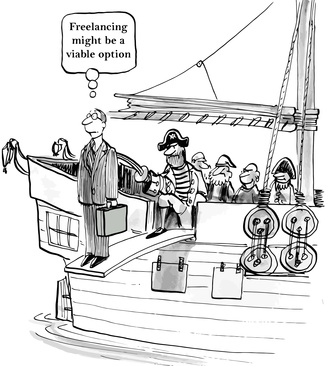Most voice over artists work as independent contractors. It’s important to know what this means, especially if you’re hoping to make this a full time business.
Independent Contractor: What It Means
An independent contractor is someone who earns a living from their own businesses. Independent contractors work with many clients. Generally, the person who pays the independent contractor cannot tell someone what to do or how to do it. They can only tell the person what they want the result to be, according to the Internal Revenue Service.
As an independent contractor in the voice over industry, you can take advantage of:
- Being your own boss
- Setting your own rates
- Tax-related business deductions
- Flexibility of when you work
While these benefits may seem great, there are a few disadvantages you should know.
- It can be difficult to bring in clients.
- It’s possible not to get paid by some clients.
- You’ll have to pay self-employment tax.
- You won’t receive benefits like you would working as a full time employee.
Rights as an Independent Contractor in the Voice Over Industry
You will have many different clients as an independent contractor. Some clients will try to take advantage of you. They will try to negotiate your rates for projects to get you to do the work for the lowest price possible. Be careful when you negotiate. You are a professional voice over artist, and your time and voice are precious. You don’t have to take clients who don’t want to pay you what you deserve.
Some clients will try to tell you that you have to work on the project at certain times during the day. You do not have to work when a client says he wants you to – you set your own schedule. You just need to produce the project in its entirety by the due date. How you decide to do that is up to you.
Projects should have an end date. That doesn’t mean you can’t work with that client again on another project. What it means is that you don’t work indefinitely for the client.
An Easy Way to Explain It
When you use a photographer to take family photos, you expect them to be high quality. You don’t tell the photographer what to do, and you don’t tell the person when to take the photos. You make an appointment or walk in when the studio is open. The result is what you’re asking for and expecting. If you don’t like the result, you probably won’t use that photographer again. The photographer doesn’t owe you anything, and you don’t owe him anything except for any fees you agreed to pay for even for unsatisfactory results.
This is how your voice over business should be when working as independent contractor. You manage everything and your clients only tell you what they want from you.
Is It for You?
Being an independent contractor in the voice over industry isn’t for everyone. Some people prefer working for someone because it’s structured and there’s more job security. You may want to try it for a while to see if it’s something you like, and if not, you can then look for opportunities in which you can work exclusively for an employer.






